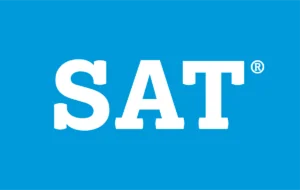
In a significant education reform, South Korea has taken a bold step to eliminate the notorious “killer questions” from the annual College Scholastic Ability Test (CSAT). CSAT is the country’s principal college entrance exam. These questions are known for their extreme difficulty. And tangential relevance to the test topics, have stirred discontent among students and parents. Moreover, even government officials, including the president himself are befuddeled.

✅ AI Essay Writer ✅ AI Detector ✅ Plagchecker ✅ Paraphraser
✅ Summarizer ✅ Citation Generator
Key Takeaways:
- South Korea’s CSAT is undergoing significant reform with the planned removal of “killer questions.”
- The questions have drawn criticism for their complexity and for fostering over-reliance on private education.
- The government’s decision aims to lessen the burden on students and reduce the economic strain on families.
- Critics argue that the reform may not drastically change the dependency on private tutoring.
The Predicament of ‘Killer Questions’
For years, high school seniors in South Korea have grappled with the daunting “killer questions” on the CSAT. CSAT is an annual exam that plays a pivotal role in their academic futures. The killer questions, infamous for their high complexity often exceed the scope of the public education system curriculum. The intensity of these questions and their divergence from standard topics have drawn criticism from various quarters. For example, while the standardized test was supposed to be on the Korean language, students were faced with questions related to equity capital and risk-weighted bank assets. The disparity is so vast that President Yoon Suk Yeol has explicitly demanded that material not covered in public school be removed from the exams.
These killer questions have inadvertently spurred the growth of the private education sector, especially the so-called cram schools. The private academies, offering extensive preparation for the CSAT, usually house students until the late-night hours. The pressure of acing the CSAT to secure a spot in the country’s top universities has led to an intense competition among students. The exam has not only created an academic race but also triggered an economic one. According to government statistics, last year families spent an astounding 26 trillion won (around $20 billion), a 10% increase from the previous year, on private education.
The Government’s Intervention and Future Implications
To alleviate the mounting pressure on students and to decrease the dependency on private tutoring, the Ministry of Education announced that it would drop the killer questions from the CSAT. However, this move has garnered mixed reactions. Critics argue that the exclusion of difficult questions may not change the status quo. Students will continue to attend private academies to prepare for all levels of test complexity, not just the killer questions. Moreover, with the removal of the hardest questions, students might face greater penalties for errors on the comparatively easier questions, as highlighted by Koo Yong-hyun, a former private tutor.
Mastering Difficult Test Problems
Encountering challenging questions is an inevitable part of any rigorous exam, such as the CSAT or other standardized tests. Mastering such problems often requires a comprehensive understanding of the subject matter, strategic approach, and an effective study routine. Here, we will delve into detailed strategies and techniques that can help students overcome these testing hurdles.

Strategies and Techniques
- Understanding the Basics Thoroughly: Grasping the fundamentals is crucial. Beyond rote memorization, students should aim for a deeper conceptual understanding of the topics at hand. This foundational knowledge enables them to extrapolate principles to complex or novel problems. Plus, it fosters the development of critical thinking skills, an essential asset for successfully navigating unexpected or difficult questions.
- Frequent and Diverse Practice: Practice, as they say, makes perfect. Regular engagement with a wide array of question types familiarizes students with the testing landscape, including its more challenging terrains. Incorporating harder problems in practice sessions improves problem-solving abilities and bolsters time management skills, a vital factor in comprehensive exams.
- In-depth Problem Analysis: Navigating complex questions often requires a different set of navigational tools. Rather than diving headlong into the problem, students should first take time to thoroughly understand what’s being asked. Identifying key components, breaking the question down into manageable parts, and systematically addressing each segment can clear confusion and streamline the problem-solving process.
- Effective Time Management: Time is a valuable currency in exams, and effective time management can dramatically influence a student’s success. Given that complex problems tend to be more time-consuming, students must prioritize questions based on their difficulty and weightage. This strategy ensures a balanced approach to the test, avoiding the potential pitfall of getting mired in a single, demanding problem.
- Reaching Out for Help: Asking for help when stumped by difficult problems is not a sign of weakness, but a practical strategy. Engaging teachers, tutors, or classmates can offer new perspectives and diverse methods for approaching a problem. This collaborative approach fosters a supportive learning environment and can lead to a deeper understanding and enhanced problem-solving skills.
To provide a snapshot of these strategies, let’s take a look at the following table:
| Strategy | Description | Benefits |
|---|---|---|
| Understand the Basics📚 | Master the fundamental principles of the subject | Promotes critical thinking and application of principles |
| Frequent Practice ✍️ | Engage with a diverse range of problem types regularly | Enhances problem-solving and time management skills |
| Problem Analysis 🔍 | Take time to thoroughly understand the question before solving | Prevents confusion and promotes a structured problem-solving approach |
| Time Management⏱️ | Prioritize questions based on their complexity and marks | Ensures a balanced approach to the test |
| Seek Help 🤝 | Reach out to others for guidance when encountering difficulties | Fosters collaborative learning and offers diverse problem-solving perspectives |
By integrating these strategies into their study routine, students can better equip themselves to tackle complex problems. Thereby, they can alleviate exam-related stress and enhancing their overall performance.
The Verdict
The removal of killer questions from South Korea’s CSAT represents a significant shift in the country’s examination system. The aim of which is reducing reliance on private education and alleviating the financial burdens on families. However, the debate over its potential impact continues. Regardless, students should develop strategies to tackle complex problems and be equipped with the necessary skills to face any type of question, in the CSAT or any other exam.
Also read:
Grim Job Prospects Loom Ahead in China As A Record Number of Students Take College Entrance Exam
The Benefits and Drawbacks of Timed Math Tests
PhD Job Seeker Criticizes the Use of Quick Logic Tests in Hiring
Follow us on Reddit for more insights and updates.





Comments (0)
Welcome to A*Help comments!
We’re all about debate and discussion at A*Help.
We value the diverse opinions of users, so you may find points of view that you don’t agree with. And that’s cool. However, there are certain things we’re not OK with: attempts to manipulate our data in any way, for example, or the posting of discriminative, offensive, hateful, or disparaging material.